<< back to NYSG Success Stories introduction page
New York Sea Grant Posts Impact Statements for Great Lakes and Marine District Projects
A sampling of results and impacts from recently completed New York Sea Grant's extension and education initiatives.
Contacts:
Ithaca, NY, April 26, 2016 - New York Sea Grant has issued a series of impact statements for 15 of its projects in 2015. Community resiliency to coastal storm events and supporting healthy New York coastal ecosystems and economies are key focus areas of the projects.
The project profiles complete with partners and funding sources for this year are below; Content for previous years can be found at www.nyseagrant.org/successstories.
Impact statement for projects in New York’s Great Lakes district include:
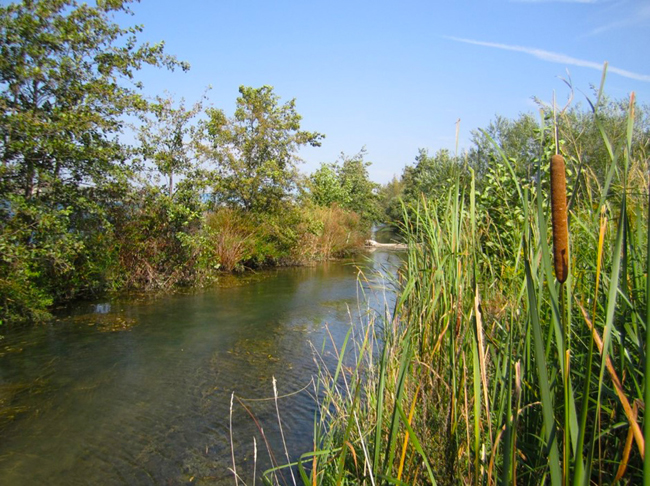
Exploring Nature-Based Shorelines Erosion Management Practices Along NY’s Great Lakes (pdf)
Proactive outreach by New York Sea Grant prompted identification of current nature-based shorelines (NBS) projects, how NBS may apply to NY’s Great Lakes region, resource/info gaps, and opportunities for future NBS-focused collaborative planning, design, and management activities by agencies and stakeholders.
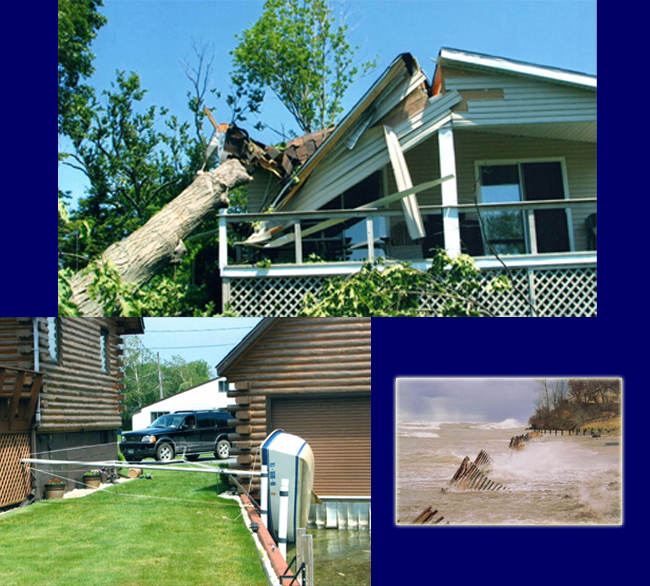
Living with the Ever-Changing Dunes along Eastern Lake Ontario (pdf)
New York Sea Grant organized an educational workshop for nearly 50 municipal leaders and citizens along the eastern shore of Lake Ontario demonstrated issues of pressing weather concerns and how individuals and communities can increase their preparedness for coping with extreme weather events along NY’s Great Lakes shoreline.
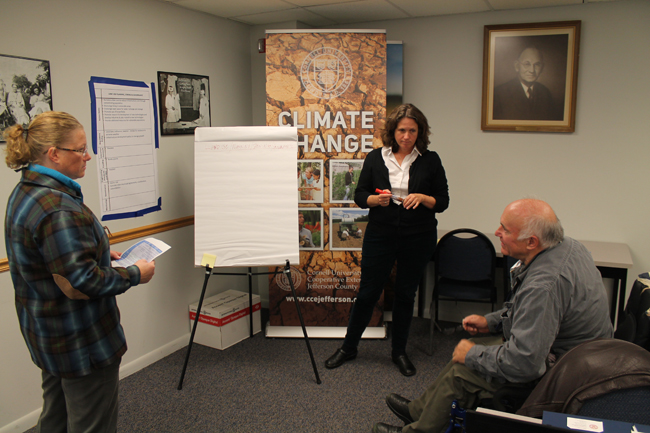
Lake Ontario Futures Workshops Engage Stakeholders (pdf)
New York Sea Grant engaged Great Lakes citizens in visioning four possible future states of the Lake Ontario region with high and low population and precipitation. State, federal, and provincial lakewide planning and management agencies received a report suggesting potential adaptation actions from infrastructure improvement to wetland restoration.
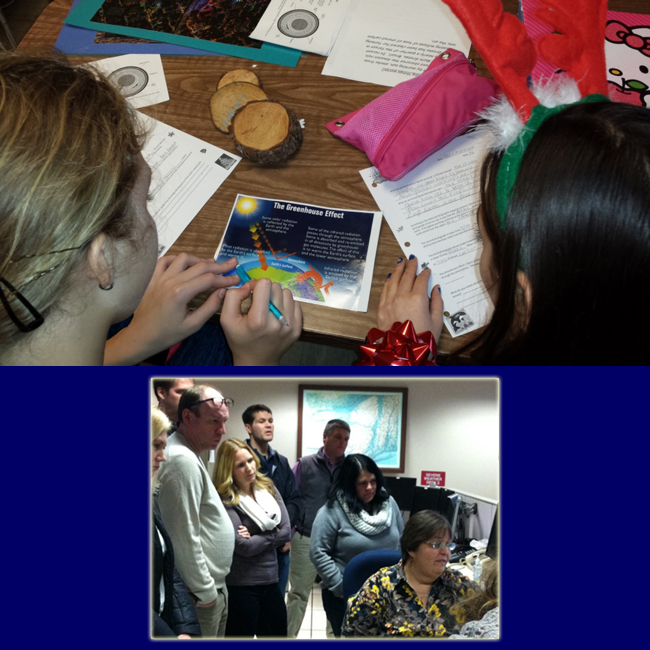
NYSG Advancing Great Lakes Education: From Algae to Zooplankton (pdf)
New York Sea Grant “teach-the-teacher” experiential learning opportunities and classroom-tested curricula infuse classrooms with Great Lakes information to prompt student interest in the environment. In 2015, a NOAA grant allowed NYSG to partner with the National Weather Service, Buffalo, to educate teachers about Great Lakes climate change that extended Great Lakes literacy lessons to more than 13,500 students.
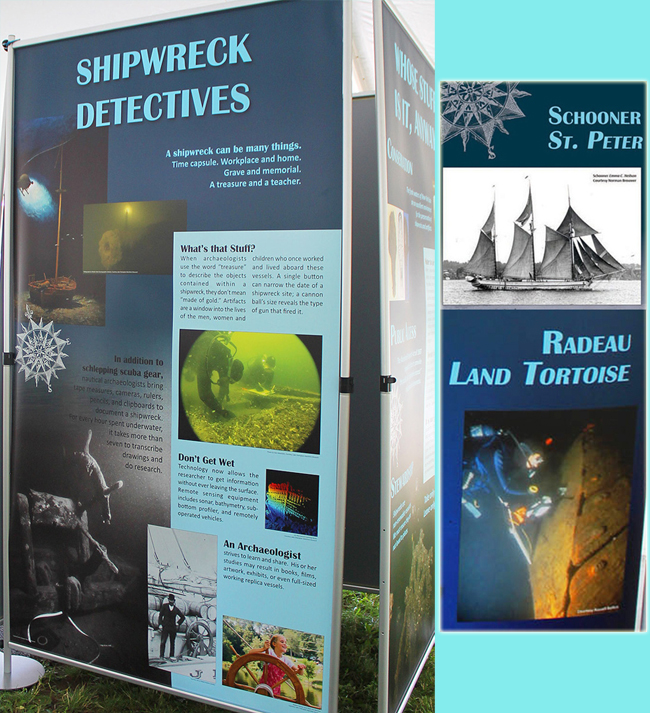
NYSG Launches Maritime History Exhibit Multi-State Tour (pdf)
New York Sea Grant worked with multiple partners to develop a traveling exhibit creating excitement about New York’s freshwater maritime history, underwater science and exploration, and waterfront destinations. The Great Shipwrecks of NY’s ‘Great' Lakes exhibit is in Erie, PA, through April 25. It will visit Albany, NY, in May 2016.
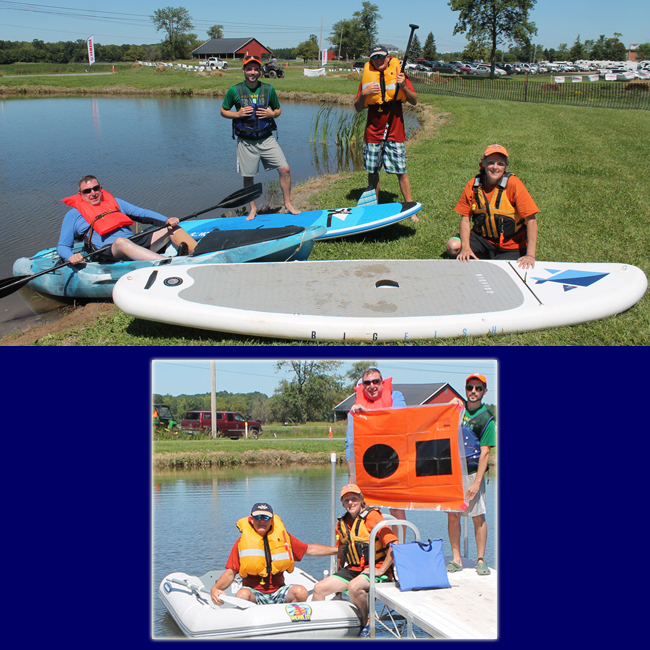
Suddenly-In-Command Education Focused on Safety (pdf)
In 2015, the award-winning New York Sea Grant’s Discover Clean & Safe Boating campaign added a Suddenly-In-Command introduction, taught in cooperation with the U.S. Coast Guard Auxiliary, on how to assess an emergency situation, stabilize a recreational vessel, summon assistance, and potentially pilot the boat to shore. According to the 2013 NYS Recreational Boating Report 63 percent of boating emergencies occur while cruising or drifting on the water.
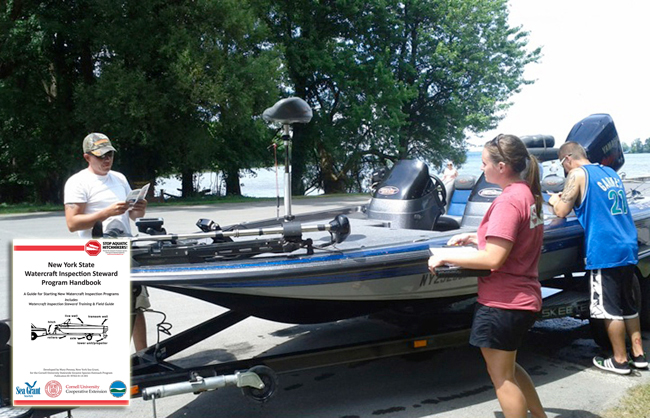
Train-the-Trainer Approach Advances Watercraft Stewardship (pdf)
To enhance standardization of watercraft inspection programs statewide, New York Sea Grant published the New York State Watercraft Inspection Steward Program Handbook in 2014 and used it in workshops for new and existing program leaders in 2015. Partners include representatives of the Adirondacks, Buffalo-Niagara, Catskills, Finger Lakes, Lake Champlain, Western NY, and inland lakes and waters statewide.
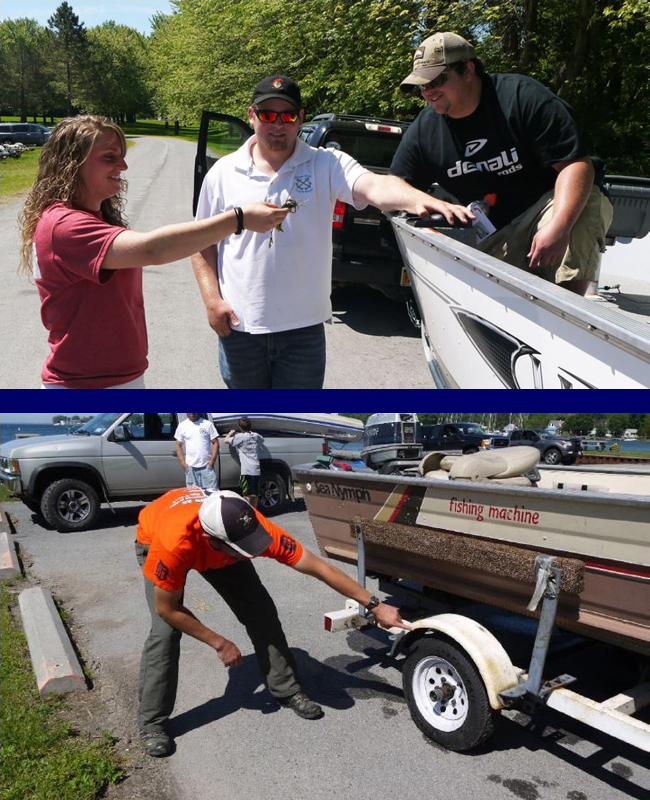
Watercraft Inspection Program Webinar Series Now Online (pdf)
In 2015, NYSG debuted a six-part webinar series on the logistics of starting a new watercraft inspection program and on standardizing existing programs to enhance efforts to slow and stop the spread of aquatic invasive species. Nearly half of the participants in the series, posted at nyseagrant.org/watercraftinspection, are interested in developing new watercraft inspection programs.
Impact statement for projects in New York’s marine district include:
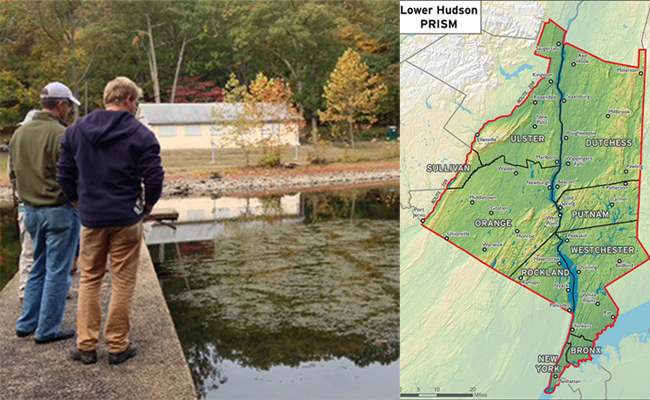
Aquatic Invasive Species Education Along the Hudson River (pdf)
In 2015, New York Sea Grant partnered with the Lower Hudson Partnership for Regional Invasive Species Partnership and Cornell Cooperative Extension provided 40 community leaders in six downstate counties with invasive species identification training. With the NYS Department of Environmental Conservation and nonprofit Hudson River Sloop Clearwater, Inc., NYSG helped survey for the presence of the invasive Hydrilla verticulata in the Croton River, a Westchester County tributary to the Hudson River.
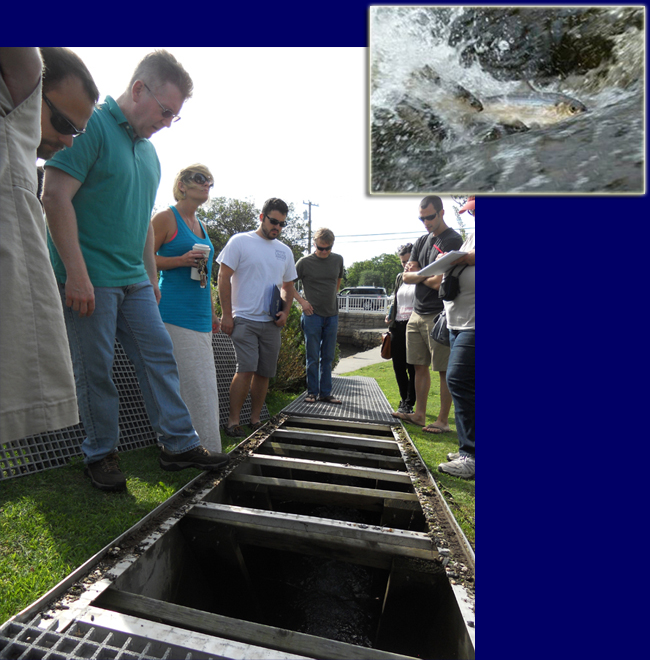
Fish Passage Workshop Empowers Biologists and Engineers (pdf)
New York Sea Grant training on the ecosystem and engineering aspects of fish passage is enhancing design, operation, and oversight of the structures that help fish complete their life cycles, particularly spawning and juvenile fish growth stages. A NYSG workshop in 2015 attracted 45 engineers, biologists, hydrologists, and environmental scientists from New York and New England.
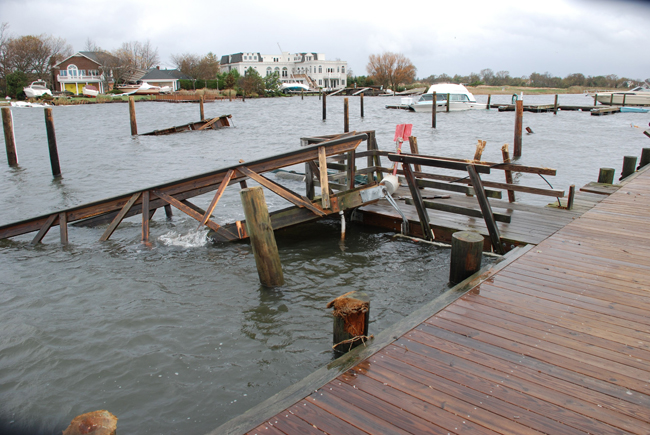
NYSG Assists Marinas in Sandy Recovery Efforts (pdf)
New York Sea Grant is working with State officials, including the Governor’s Office of Storm Recovery (GOSR), and the marina industry to help businesses access needed funding and information resources for recovery from Superstorm Sandy. According to GOSR, marine-based businesses accounted for 25 percent of the total value of grants awarded to all business sectors by the NY Rising Small Business Recovery Program.
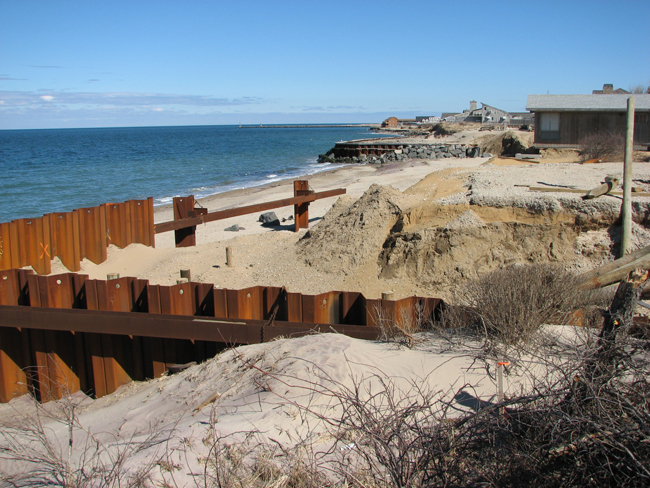
NYSG Helps Town of East Hampton with Coastal Resiliency Planning (pdf)
New York Sea Grant worked with the Town of East Hampton and a national consulting company to develop a proposal for a demonstration project that will identify and collect the data needed to inform the coastal resiliency planning in the Town. In 2016, NYSG will serve as a technical advisor to the project that received $220,000 in New York State Energy Research and Development Authority Climate Change Adaptation Opportunities Program funding.
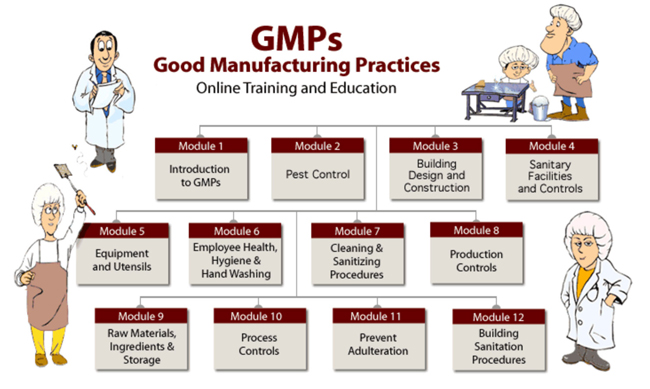
NYSG Internet-Based Food Industry Training Helps Assure Good Manufacturing Practices (pdf)
In 2015, New York Sea Grant facilitated the completion by 268 individuals representing 32 U.S. states and 14 foreign countries of Good Manufacturing Practices training. The course, required of food manufacturers, processors, wholesalers, distributors and storage workers by the U.S. Food and Drug Administration, is offered online.
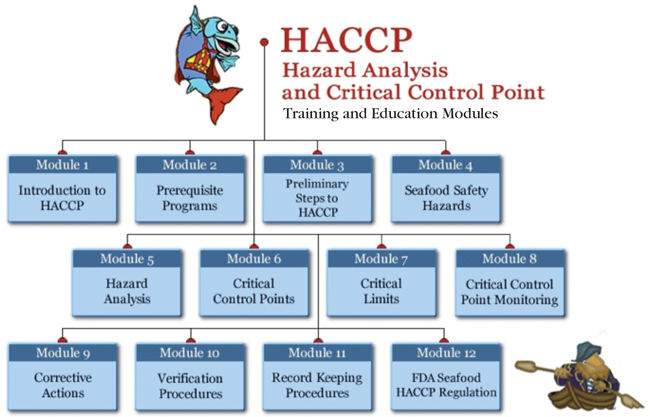
NYSG Provides Critical Seafood Safety Training Via Internet (pdf)
In 2015, New York Sea Grant facilitated the completion by more than 1400 individuals of online Hazard Analysis Critical Control Point food safety training for seafood businesses.
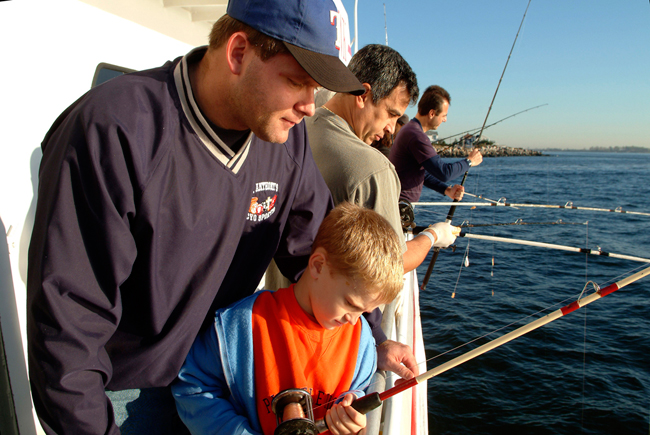
Working with Sport Fishing Businesses to Build a Vision for Growth (pdf)
New York Sea Grant and sport fishing businesses are developing a vision for economic resiliency focused in the Long Island region. A three-tier strategic plan outline developed in 2015 identifies crucial needs for action and monetary investment focused on media and promotion, grassroots engagement, and improvements in conservation and data collection.
More Info: New York Sea Grant
New York Sea Grant (NYSG), a cooperative program of Cornell University
and the State University of New York, is one of 33 university-based
programs under the National Sea Grant College Program (NSGCP) of the
National Oceanic and Atmospheric Administration (NOAA). The NSGCP
engages this network of the nation’s top universities in conducting
scientific research, education, training and extension projects designed
to foster science-based decisions about the use and conservation of our
aquatic resources. Through its statewide network of integrated
services, NYSG has been promoting coastal vitality, environmental
sustainability, and citizen awareness about the State’s marine and Great
Lakes resources since 1971.
New York Sea Grant maintains Great Lakes offices at SUNY Buffalo, the
Wayne County Cooperative Extension office in Newark and at SUNY Oswego. In the State's marine waters, NYSG has offices at Stony Brook University and Stony Brook Manhattan, in the Hudson Valley through Cooperative Extension in Kingston and at Brooklyn College.
For updates on Sea Grant activities: www.nyseagrant.org has RSS, Facebook, Twitter, and YouTube links. NYSG also offers a free e-list sign up via www.nyseagrant.org/coastlines for its flagship publication, NY Coastlines/Currents, which is published several times a year.